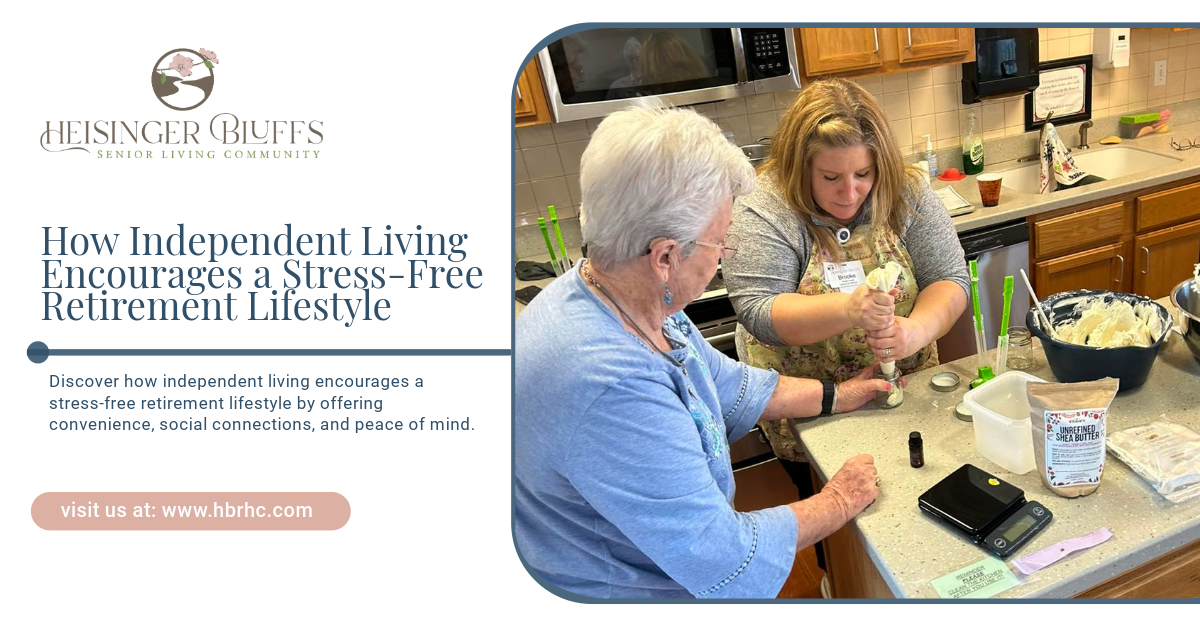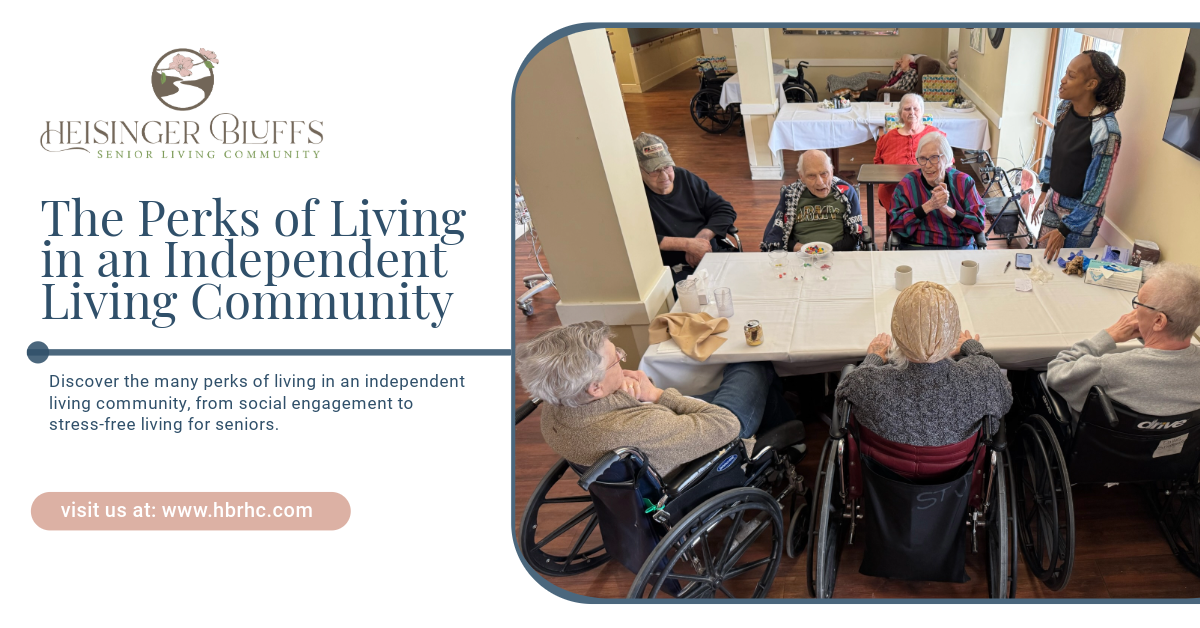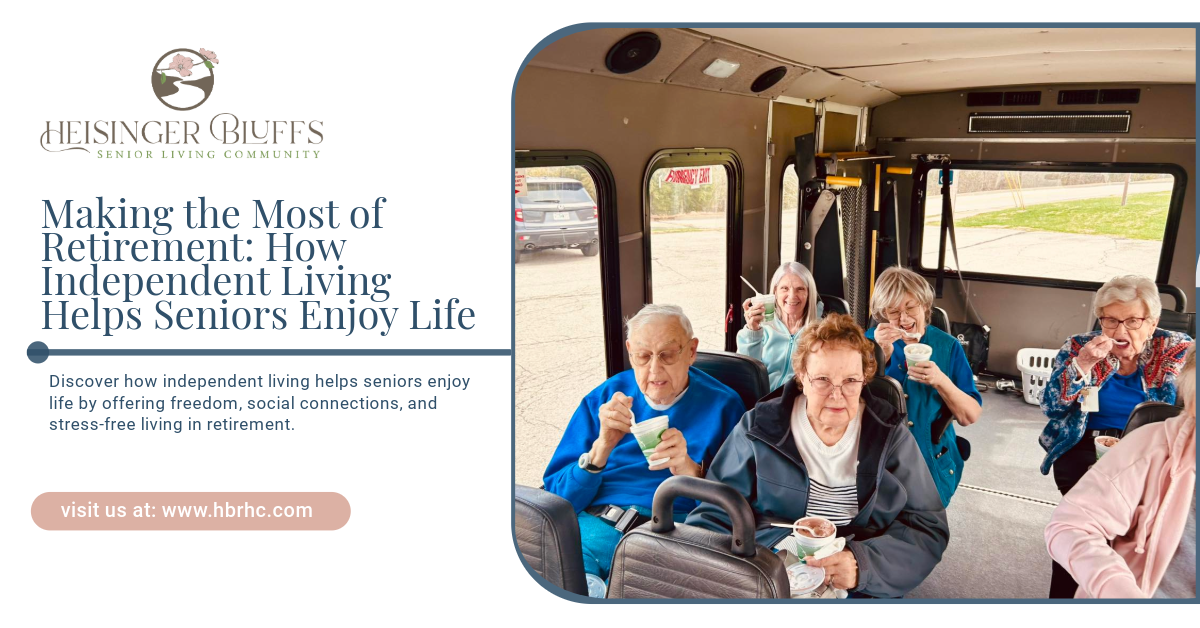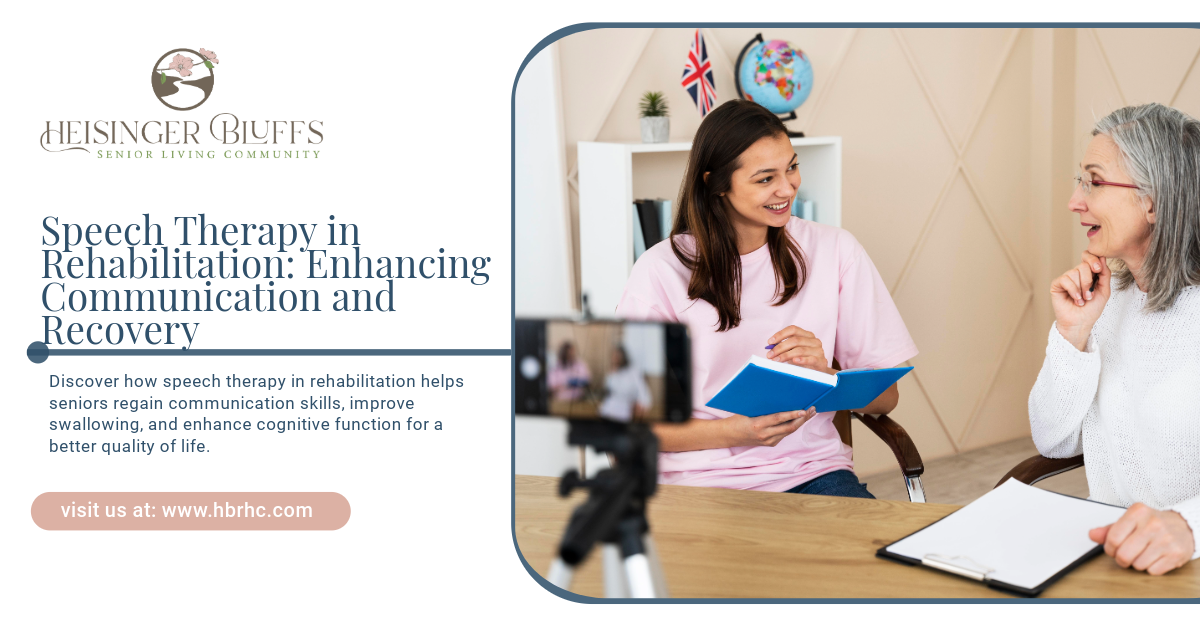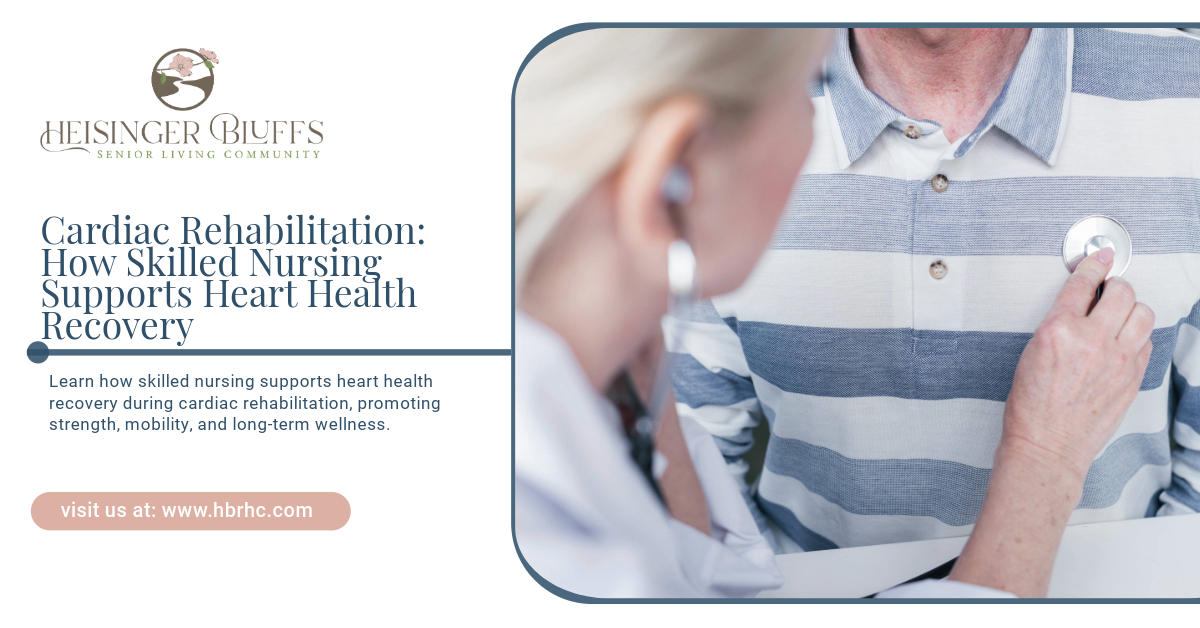Get in touch
Why Seniors Use Short-Term Rehabilitation Services ? Top Reasons
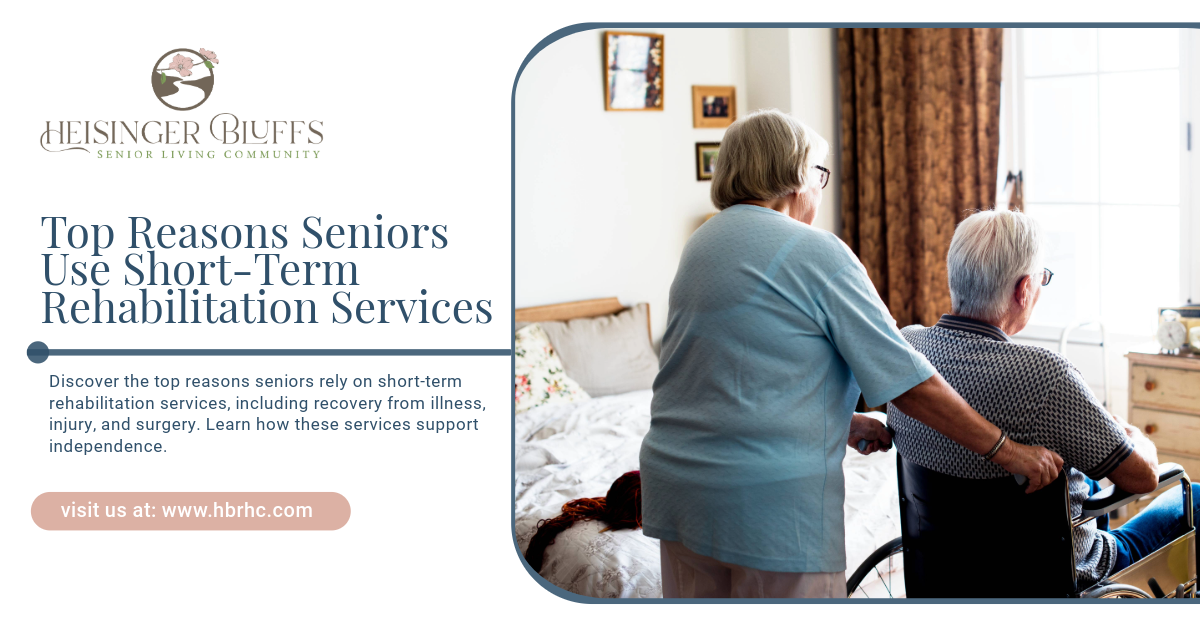
7 Reasons Why Seniors Use Short-Term Rehabilitation Services
Short-term rehabilitation services play a critical role in helping seniors recover and regain their independence after a major health event. These programs are tailored to address specific needs, whether it's recovering from surgery, managing an illness, or rehabilitating after an injury. In this blog, we’ll explore the top reasons seniors turn to short-term rehabilitation services, how these services work, and the immense benefits they offer to seniors and their families.
1. Recovery After Surgery
Surgery, particularly in seniors, can take a significant toll on the body. Common surgeries like joint replacements (hips or knees), heart surgery, or spinal procedures often require focused rehabilitation to restore strength, mobility, and function.
How Short-Term Rehabilitation Helps
- Physical Therapy: Helps restore mobility and reduce pain through structured exercises.
- Occupational Therapy: Teaches seniors how to navigate daily activities like dressing, bathing, and cooking after surgery.
- Skilled Nursing Care: Provides wound care, monitors for infections, and ensures medication management during recovery.
Benefits for Seniors
- Faster recovery with professional guidance
- Reduced risk of complications or re-injury
- Emotional support from a dedicated care team
2. Rehabilitation After an Injury
Seniors are at a higher risk of injuries, especially from falls, which can result in fractures, sprains, or head trauma. Even minor injuries can significantly impact their mobility and confidence.
How Short-Term Rehabilitation Helps
- Fall Prevention Programs: Care teams address balance and strength to reduce future fall risks.
- Mobility Support: Therapists work on improving walking, climbing stairs, and using assistive devices.
- Emotional Recovery: Injuries can cause fear of falling again. Therapy often includes strategies to rebuild confidence.
Benefits for Seniors
- Regained independence after injury
- Comprehensive care that includes both physical and emotional well-being
3. Recovery from Illness or Hospitalization
A prolonged illness, such as pneumonia, heart failure, or stroke, can weaken seniors significantly. After being discharged from the hospital, they often need additional care to fully recover.
How Short-Term Rehabilitation Helps
- Speech Therapy: For conditions like stroke, therapy helps rebuild communication and swallowing abilities.
- Respiratory Therapy: Assists with breathing exercises and lung function improvement after illnesses like pneumonia.
- Nutritional Support: Dietitians create plans to restore energy and health.
Benefits for Seniors
- Smooth transition from hospital to home
- Reduced risk of readmission through consistent care and monitoring
4. Management of Chronic Conditions
Chronic conditions like arthritis, diabetes, or cardiovascular diseases often flare up, leading to periods where additional care is needed. Short-term rehabilitation offers targeted support during these times.
How Short-Term Rehabilitation Helps
- Pain Management: Therapists provide techniques to alleviate chronic pain.
- Education and Training: Seniors learn how to manage their conditions, including medication adherence and lifestyle adjustments.
- Strength Building: Focuses on improving physical fitness to better manage symptoms.
Benefits for Seniors
- Improved quality of life despite chronic conditions
- Greater ability to manage health independently
5. Transitional Care After Hospital Discharge
Even if hospitalization isn’t for a major illness or surgery, many seniors need time to transition safely back to their routines. Short-term rehabilitation serves as a bridge between hospital care and home life.
How Short-Term Rehabilitation Helps
- Comprehensive Monitoring: Skilled staff monitor seniors’ progress and adjust care as needed.
- Rebuilding Stamina: Physical therapy focuses on regaining energy levels for daily tasks.
- Family Involvement: Care teams guide families on how to support seniors once they return home.
Benefits for Seniors
- Lower stress with professional support during the transition
- Confidence to return to independent living
6. Cognitive and Neurological Rehabilitation
Conditions like stroke, Parkinson’s disease, or dementia-related challenges often require specialized rehabilitation to address cognitive and neurological impairments.
How Short-Term Rehabilitation Helps
- Speech and Language Therapy: Helps rebuild communication and memory skills.
- Neurological Exercises: Supports motor skills, balance, and coordination.
- Cognitive Stimulation: Engages seniors in activities that support mental health and focus.
Benefits for Seniors
- Improved ability to communicate and navigate daily tasks
- Emotional stability through consistent support and progress tracking
7. Regaining Independence After a Setback
Whether due to a minor health issue or a significant one, setbacks can affect a senior’s ability to live independently. Short-term rehabilitation is designed to help them regain lost independence as quickly as possible.
How Short-Term Rehabilitation Helps
- Customized Care Plans: Every senior receives care tailored to their specific needs and goals.
- Progress Monitoring: Therapists and nurses adjust treatment plans as seniors improve.
- Daily Living Training: Focuses on relearning skills for independent living, like meal preparation and household tasks.
Benefits for Seniors
- Renewed confidence in their abilities
- Improved physical and mental strength for daily activities
Why Short-Term Rehabilitation Is Essential for Seniors
Short-term rehabilitation provides a holistic approach to recovery. It focuses not just on physical health but also on emotional well-being and long-term independence. The dedicated teams of therapists, nurses, and aides work together to create a nurturing environment where seniors can thrive during their recovery journey.
Final Thoughts
At Heisinger Bluffs, our short-term rehabilitation services are designed to support seniors every step of the way, ensuring a smooth recovery and a return to the activities they love. Schedule a visit today to learn how we can help you or your loved one recover with care and confidence.
Frequently Asked Questions
What is short-term rehabilitation, and who is it for?
Short-term rehabilitation is a temporary care program designed to help individuals recover from surgery, illness, injury, or other health setbacks. It is ideal for seniors who need extra support before returning to their normal routines.
How long does short-term rehabilitation usually last?
The length of rehabilitation depends on the individual’s condition and recovery progress. It can last anywhere from a few days to several weeks.
What services are included in short-term rehabilitation?
Short-term rehabilitation typically includes physical therapy, occupational therapy, speech therapy, skilled nursing care, pain management, and assistance with daily living activities.



Want to know more?
We will get back to you as soon as possible.
Please try again later.
You May Also Like To Read
Heisinger Bluff’s Life Plan Community is here to make your senior years safe, stimulating and enjoyable so that you can savor the present, knowing the future will be taken care of.
QUICK LINKS
CONTACT
©2024. Heisinger Bluffs. All rights reserved.


